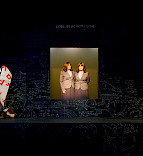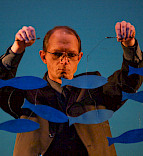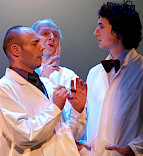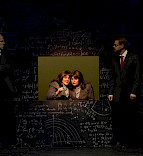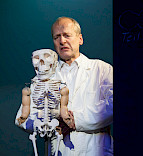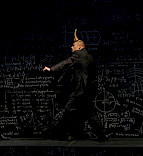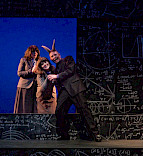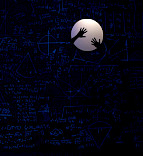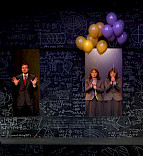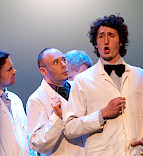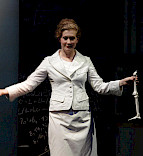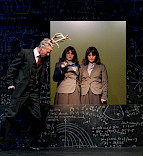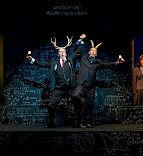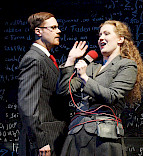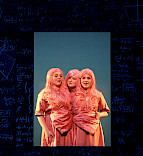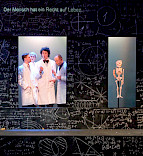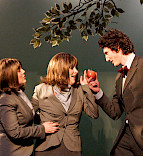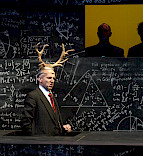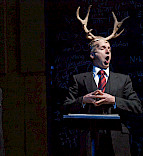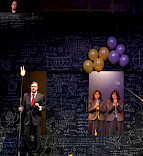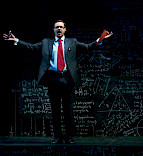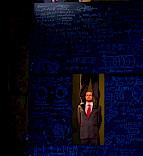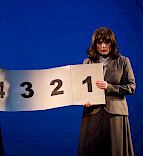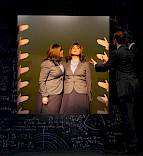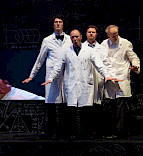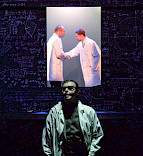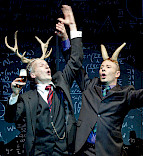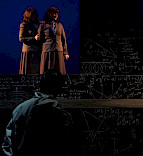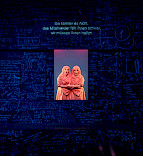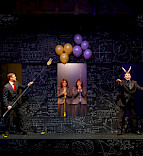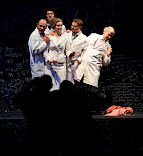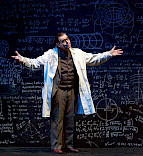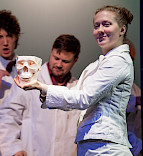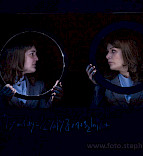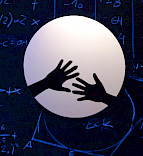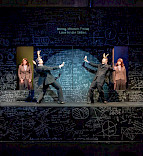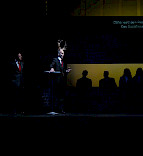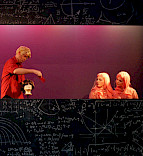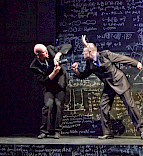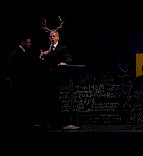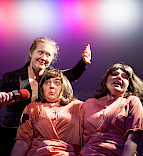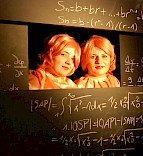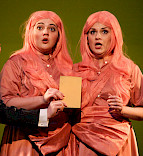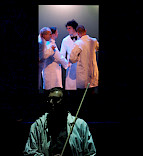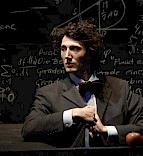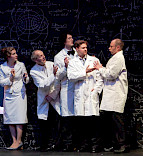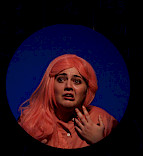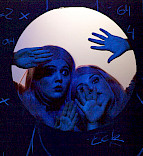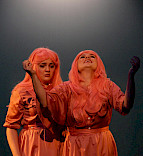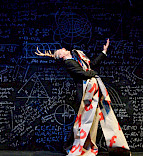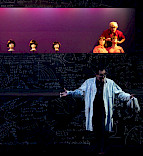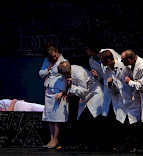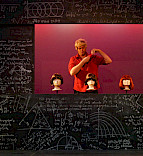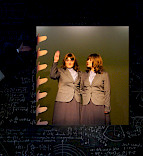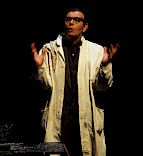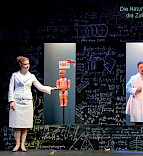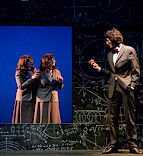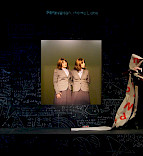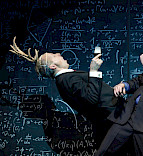Hofkirchner - 05.01.2013, Wolfgang Hofkirchner
this piece of art is a wonderful trigger to think about the world we want to live in. the story reads like an allegory of the history of humanity. MarieLuise is a pair of conjoined twins. they are specialists of the “we”. they live in symbiosis. they share their body and are regardful to each other. it’s the best world they can think of. when confronted with single-bodied humans in the here and now – a world that is governed by farcical self-regarding individuals – they fail to mainatin their unity. Kristine Torquist calls it “the big bang of human history: the parting with symbiosis” (my translation). the dissociation is carried out by the surgical dissection of the twins. Luise can live autonomously only at the cost of Marie’s death. “how deaf and silent is the night”, says Luise then, “whom shall i tell”. “if it is only me now, it is not me anymore” (my translations).
the story plays with math and theory of swarms (not always in a correct way) to deal with an emergent whole. the whole is not the sum of parts, it can thus be broken into pieces only.
it’s true: humanity lives in one, single spaceshuttle. for good or for evil the parts have grown dependent on each other like in the case of the siamese twins. parochialism can lead to exterminism. what is needed now, however, is not a u-turn to siamese fusion, to pre-civilisational tribalism, but a transformation of civilisation into an emergent world society that takes the state of self-regardedness we have reached so far as point of departure. we need to make the most of it in that we take for granted the true and best interests of any compartment of the whole. what these true and best interests are has to be deliberated freely. and for sure, it will not work without cuts. cuts need to be made where short-sighted interests can’t be pursued in the long run because the whole is at stake and with it each single part.
i’m not sure whether or not that’s the message that the author intended. at least, that’s what came to my mind.
***
Dieses Kunstwerk ist ein wunderbarer Anstoß, über die Welt nachzudenken, in der wir leben wollen. Die Geschichte liest sich wie eine Allegorie der Geschichte der Menschheit. MarieLuise sind ein Paar siamesischer Zwillinge. Sie sind Spezialisten des „Wir“. Sie leben in Symbiose. Sie teilen ihren Körper und nehmen Rücksicht aufeinander. Es ist die beste Welt, die sie sich vorstellen können. Wenn sie im Hier und Jetzt mit einkörperigen Menschen konfrontiert werden – einer Welt, die von absurden, selbstbezogenen Individuen regiert wird – versagen sie, ihre Einheit zu bewahren. Kristine Torquist nennt es „den Urknall der Menschheitsgeschichte: den Abschied von der Symbiose“. Die Dissoziation erfolgt durch chirurgische Dissektion der Zwillinge. Luise kann nur um den Preis von Maries Tod autonom leben. „Wie taub und still ist die Nacht,“, sagt Luise dann, „wem soll ich es erzählen?“ „Wenn es jetzt nur ich bin, bin ich es nicht mehr“.
Die Geschichte spielt mit Mathematik und der Schwarmtheorie (nicht immer korrekt), um mit einem entstehenden Ganzen umzugehen. Das Ganze ist nicht die Summe seiner Teile, es kann also nur in Einzelteile zerlegt werden.
Es stimmt: die Menschheit lebt in einem einzigen Spaceshuttle. Zum Guten oder zum Bösen sind die Teile wie bei den siamesischen Zwillingen voneinander abhängig geworden. Engstirnigkeit kann zu Exterminismus führen. Was jetzt aber nötig ist, ist keine Kehrtwende zur siamesischen Verschmelzung, zum vorzivilisatorischen Tribalismus, sondern eine Transformation der Zivilisation in eine aufstrebende Weltgesellschaft, die den bisher erreichten Zustand der Selbstachtung zum Ausgangspunkt nimmt. Wir müssen das Beste daraus machen, indem wir die wahren und besten Interessen jedes Teils des Ganzen als selbstverständlich ansehen. Was diese wahren und besten Interessen sind, muss frei überlegt werden. Und ohne Schnitte geht es sicher nicht. Kürzungen müssen dort vorgenommen werden, wo kurzsichtige Interessen auf Dauer nicht verfolgt werden können, weil das Ganze und damit jedes einzelne Teil auf dem Spiel steht. Ich bin mir nicht sicher, ob das die Botschaft ist, die die Autorin beabsichtigt hat. Das ist mir zumindest eingefallen.

